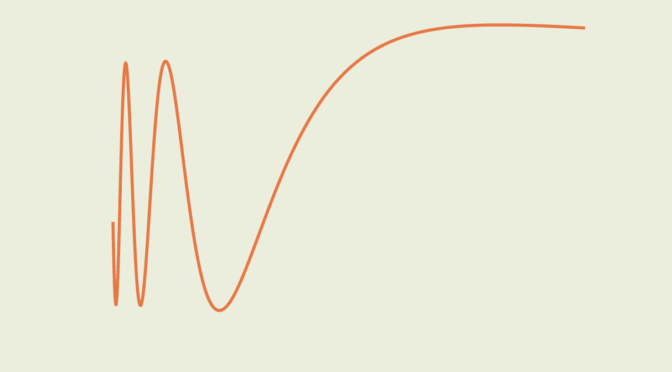The fundamental theorem of calculus asserts that for a continuous real-valued function \(f\) defined on a closed interval \([a,b]\), the function \(F\) defined for all \(x \in [a,b]\) by
\[F(x)=\int _{a}^{x}\!f(t)\,dt\] is uniformly continuous on \([a,b]\), differentiable on the open interval \((a,b)\) and \[
F^\prime(x) = f(x)\]
for all \(x \in (a,b)\).
The converse of fundamental theorem of calculus is not true as we see below.
Consider the function defined on the interval \([0,1]\) by \[
f(x)= \begin{cases}
2x\sin(1/x) – \cos(1/x) & \text{ for } x \neq 0 \\
0 & \text{ for } x = 0 \end{cases}\] \(f\) is integrable as it is continuous on \((0,1]\) and bounded on \([0,1]\). Then \[
F(x)= \begin{cases}
x^2 \sin \left( 1/x \right) & \text{ for } x \neq 0 \\
0 & \text{ for } x = 0 \end{cases}\] \(F\) is differentiable on \([0,1]\). It is clear for \(x \in (0,1]\). \(F\) is also differentiable at \(0\) as for \(x \neq 0\) we have \[
\left\vert \frac{F(x) – F(0)}{x-0} \right\vert = \left\vert \frac{F(x)}{x} \right\vert \le \left\vert x \right\vert.\] Consequently \(F^\prime(0) = 0\).
However \(f\) is not continuous at \(0\) as it does not have a right limit at \(0\).

